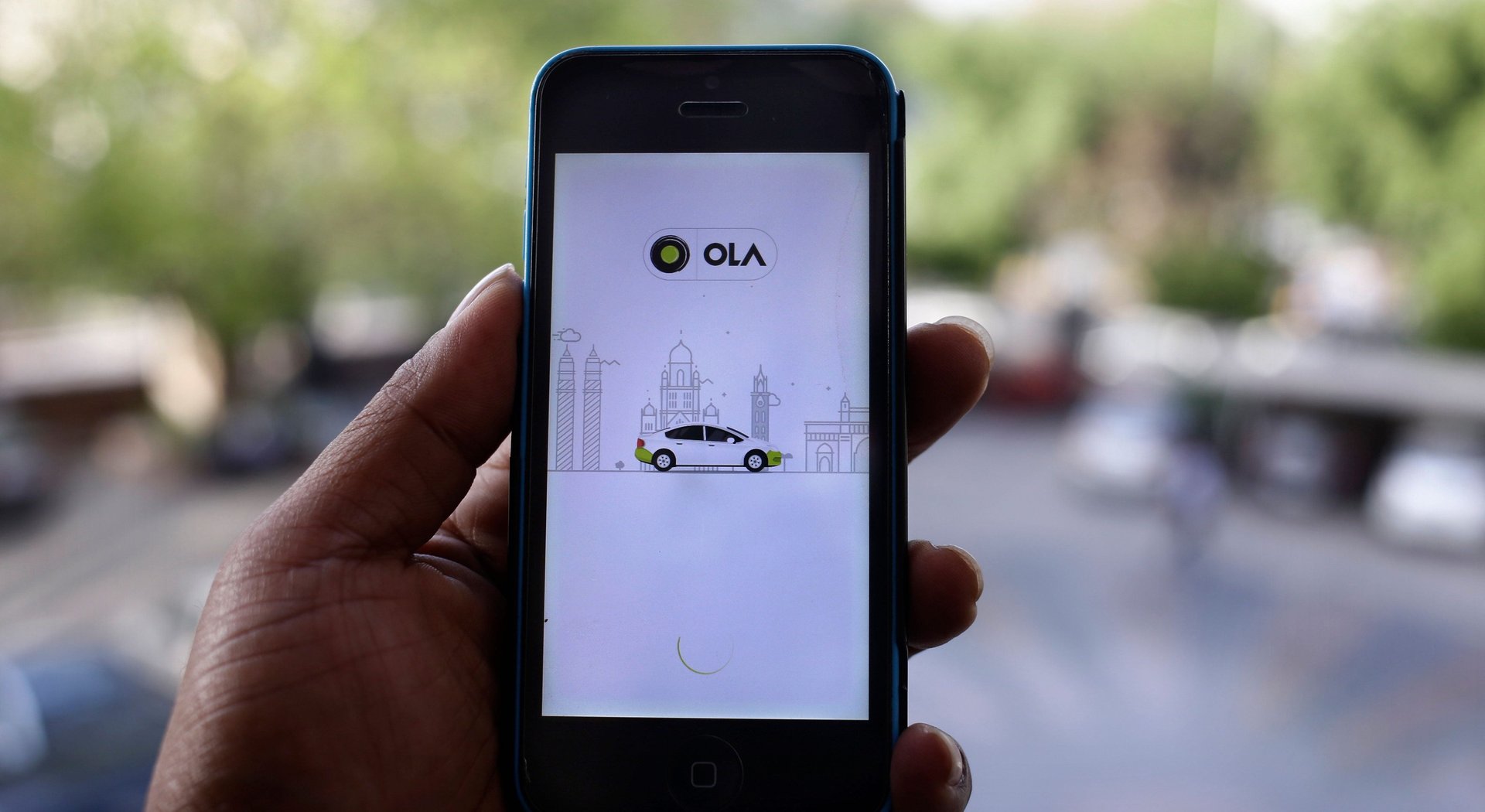After food delivery, Ola is now driving into public transport
Indian ride-hailing major Ola is going all out to diversify. And this time, it has set its eyes on the massive Indian public transport ecosystem.


Indian ride-hailing major Ola is going all out to diversify. And this time, it has set its eyes on the massive Indian public transport ecosystem.
Less than four months after it acquired food delivery company Foodpanda’s India business, Ola announced on April 03 that it had bought Mumbai-based public transport ticketing firm Ridlr for an undisclosed amount. Ridlr lets users search for and book public transport through its mobile app.
“Public transportation serves millions of Indians every day…Ridlr, in a short span, has made huge strides in this space, and this latest acquisition lends muscle to our efforts in making transportation a far more holistic service,” Bhavish Aggarwal, Ola co-founder and CEO, said in a press release.
Founded in 2012 by Brijraj Vaghani and Ravi Khemani—former employees of American department store chain Sears—Ridlr operates in Mumbai and Delhi and is running pilots in several other cities, the release said. It has partnerships with Mumbai’s Brihanmumbai Electric Supply and Transport Undertaking (BEST), Mumbai Metro, and Delhi Metro.
After raising an undisclosed amount in series A funding in 2013, Ridlr had received $6 million in Series B in July 2016 from Times Internet, Matrix Partners, and Qualcomm Ventures, among others. Matrix Partners is also an investor in Ola.
Ridlr’s 64 employees will now join Ola.
Ola on a roll
Ola’s acquisition of Ridlr comes at a time when the Bengaluru-based company is inching ahead of rival Uber.
Riddled with challenges around its work culture and the exit of its co-founder and CEO Travis Kalanick, Uber has also been withdrawing from many geographies. Just last month, Uber sold its southeast Asian business to local competitor Grab in exchange for a 27.5% stake in the company. In 2016, it exited China by selling out to local rival Didi Chuxing.
In contrast, Ola has been more aggressive than ever before.
In 2017, Ola raised $1.1 billion from Chinese internet giant Tencent and Japanese investing major SoftBank, and it has since launched its first overseas operations in Australia.
On the acquisitions front, Ridlr’s marks a spurt in Ola’s inorganic growth, so far much slower than other B2C Indian unicorns like Flipkart and Paytm.
E-commerce firm Flipkart has made around 10 acquisitions so far while e-payments major Paytm has done at least seven, according to CrunchBase, a tech company database. Ola has bought only four firms, including Ridlr:
Ola’s inorganic push is in line with what analysts had predicted for the Indian tech startup community in 2018. As internet companies in India recovered from the funding slump of 2015-16 and raised billions of dollars in 2017, it was widely expected that they would use this money to acquire smaller players to fuel growth, instead of spending it on offering discounts to customers like before.